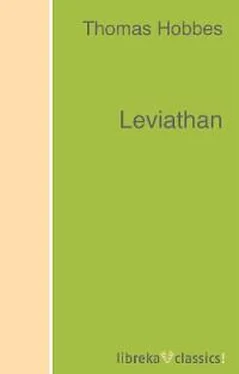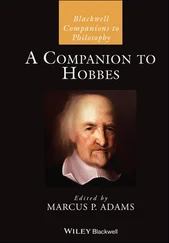Thomas Hobbes - Leviathan
Здесь есть возможность читать онлайн «Thomas Hobbes - Leviathan» — ознакомительный отрывок электронной книги совершенно бесплатно, а после прочтения отрывка купить полную версию. В некоторых случаях можно слушать аудио, скачать через торрент в формате fb2 и присутствует краткое содержание. Жанр: unrecognised, на английском языке. Описание произведения, (предисловие) а так же отзывы посетителей доступны на портале библиотеки ЛибКат.
- Название:Leviathan
- Автор:
- Жанр:
- Год:неизвестен
- ISBN:нет данных
- Рейтинг книги:5 / 5. Голосов: 1
-
Избранное:Добавить в избранное
- Отзывы:
-
Ваша оценка:
- 100
- 1
- 2
- 3
- 4
- 5
Leviathan: краткое содержание, описание и аннотация
Предлагаем к чтению аннотацию, описание, краткое содержание или предисловие (зависит от того, что написал сам автор книги «Leviathan»). Если вы не нашли необходимую информацию о книге — напишите в комментариях, мы постараемся отыскать её.
libreka classics – These are classics of literary history, reissued and made available to a wide audience.
Immerse yourself in well-known and popular titles!
Leviathan — читать онлайн ознакомительный отрывок
Ниже представлен текст книги, разбитый по страницам. Система сохранения места последней прочитанной страницы, позволяет с удобством читать онлайн бесплатно книгу «Leviathan», без необходимости каждый раз заново искать на чём Вы остановились. Поставьте закладку, и сможете в любой момент перейти на страницу, на которой закончили чтение.
Интервал:
Закладка:
By this it is manifest, that not onely actions that have their beginning from Covetousness, Ambition, Lust, or other Appetites to the thing propounded; but also those that have their beginning from Aversion, or Feare of those consequences that follow the omission, are Voluntary Actions.
Formes Of Speech, In Passion
The formes of Speech by which the Passions are expressed, are partly the same, and partly different from those, by which we express our Thoughts. And first generally all Passions may be expressed Indicatively; as, I Love, I Feare, I Joy, I Deliberate, I Will, I Command: but some of them have particular expressions by themselves, which nevertheless are not affirmations, unless it be when they serve to make other inferences, besides that of the Passion they proceed from. Deliberation is expressed Subjunctively; which is a speech proper to signifie suppositions, with their consequences; as, If This Be Done, Then This Will Follow; and differs not from the language of Reasoning, save that Reasoning is in generall words, but Deliberation for the most part is of Particulars. The language of Desire, and Aversion, is Imperative; as, Do This, Forbear That; which when the party is obliged to do, or forbear, is Command; otherwise Prayer; or els Counsell. The language of Vaine-Glory, of Indignation, Pitty and Revengefulness, Optative: but of the Desire to know, there is a peculiar expression called Interrogative; as, What Is It, When Shall It, How Is It Done, and Why So? Other language of the Passions I find none: for Cursing, Swearing, Reviling, and the like, do not signifie as Speech; but as the actions of a tongue accustomed.
These forms of Speech, I say, are expressions, or voluntary significations of our Passions: but certain signes they be not; because they may be used arbitrarily, whether they that use them, have such Passions or not. The best signes of Passions present, are either in the countenance, motions of the body, actions, and ends, or aims, which we otherwise know the man to have.
Good And Evill Apparent
And because in Deliberation the Appetites and Aversions are raised by foresight of the good and evill consequences, and sequels of the action whereof we Deliberate; the good or evill effect thereof dependeth on the foresight of a long chain of consequences, of which very seldome any man is able to see to the end. But for so far as a man seeth, if the Good in those consequences be greater than the evill, the whole chain is that which Writers call Apparent or Seeming Good. And contrarily, when the evill exceedeth the good, the whole is Apparent or Seeming Evill: so that he who hath by Experience, or Reason, the greatest and surest prospect of Consequences, Deliberates best himself; and is able, when he will, to give the best counsel unto others.
Felicity
Continual Successe in obtaining those things which a man from time to time desireth, that is to say, continual prospering, is that men call FELICITY; I mean the Felicity of this life. For there is no such thing as perpetual Tranquillity of mind, while we live here; because Life itself is but Motion, and can never be without Desire, nor without Feare, no more than without Sense. What kind of Felicity God hath ordained to them that devoutly honour him, a man shall no sooner know, than enjoy; being joys, that now are as incomprehensible, as the word of School-men, Beatifical Vision, is unintelligible.
Praise Magnification
The form of speech whereby men signifie their opinion of the Goodnesse of anything is PRAISE. That whereby they signifie the power and greatness of anything is MAGNIFYING. And that whereby they signifie the opinion they have of a man's felicity is by the Greeks called Makarismos, for which we have no name in our tongue. And thus much is sufficient for the present purpose to have been said of the passions.
CHAPTER VII. OF THE ENDS OR RESOLUTIONS OF DISCOURSE
Of all Discourse, governed by desire of Knowledge, there is at last an End, either by attaining, or by giving over. And in the chain of Discourse, wheresoever it be interrupted, there is an End for that time.
Judgement, or Sentence Final; Doubt
If the Discourse be meerly Mentall, it consisteth of thoughts that the thing will be, and will not be; or that it has been, and has not been, alternately. So that wheresoever you break off the chayn of a mans Discourse, you leave him in a Praesumption of It Will Be, or, It Will Not Be; or it Has Been, or, Has Not Been. All which is Opinion. And that which is alternate Appetite, in Deliberating concerning Good and Evil, the same is alternate Opinion in the Enquiry of the truth of Past, and Future. And as the last Appetite in Deliberation is called the Will, so the last Opinion in search of the truth of Past, and Future, is called the JUDGEMENT, or Resolute and Final Sentence of him that Discourseth. And as the whole chain of Appetites alternate, in the question of Good or Bad is called Deliberation; so the whole chain of Opinions alternate, in the question of True, or False is called DOUBT.
No Discourse whatsoever, can End in absolute knowledge of Fact, past, or to come. For, as for the knowledge of Fact, it is originally, Sense; and ever after, Memory. And for the knowledge of consequence, which I have said before is called Science, it is not Absolute, but Conditionall. No man can know by Discourse, that this, or that, is, has been, or will be; which is to know absolutely: but onely, that if This be, That is; if This has been, That has been; if This shall be, That shall be: which is to know conditionally; and that not the consequence of one thing to another; but of one name of a thing, to another name of the same thing.
Science Opinion Conscience
And therefore, when the Discourse is put into Speech, and begins with the Definitions of Words, and proceeds by Connexion of the same into general Affirmations, and of these again into Syllogismes, the end or last sum is called the Conclusion; and the thought of the mind by it signified is that conditional Knowledge, or Knowledge of the consequence of words, which is commonly called Science. But if the first ground of such Discourse be not Definitions, or if the Definitions be not rightly joyned together into Syllogismes, then the End or Conclusion is again OPINION, namely of the truth of somewhat said, though sometimes in absurd and senslesse words, without possibility of being understood. When two, or more men, know of one and the same fact, they are said to be CONSCIOUS of it one to another; which is as much as to know it together. And because such are fittest witnesses of the facts of one another, or of a third, it was, and ever will be reputed a very Evill act, for any man to speak against his Conscience; or to corrupt or force another so to do: Insomuch that the plea of Conscience, has been always hearkened unto very diligently in all times. Afterwards, men made use of the same word metaphorically, for the knowledge of their own secret facts, and secret thoughts; and therefore it is Rhetorically said that the Conscience is a thousand witnesses. And last of all, men, vehemently in love with their own new opinions, (though never so absurd,) and obstinately bent to maintain them, gave those their opinions also that reverenced name of Conscience, as if they would have it seem unlawful, to change or speak against them; and so pretend to know they are true, when they know at most but that they think so.
Beliefe Faith
When a mans Discourse beginneth not at Definitions, it beginneth either at some other contemplation of his own, and then it is still called Opinion; Or it beginneth at some saying of another, of whose ability to know the truth, and of whose honesty in not deceiving, he doubteth not; and then the Discourse is not so much concerning the Thing, as the Person; And the Resolution is called BELEEFE, and FAITH: Faith, In the man; Beleefe, both Of the man, and Of the truth of what he sayes. So then in Beleefe are two opinions; one of the saying of the man; the other of his vertue. To Have Faith In, or Trust To, or Beleeve A Man, signifie the same thing; namely, an opinion of the veracity of the man: But to Beleeve What Is Said, signifieth onely an opinion of the truth of the saying. But wee are to observe that this Phrase, I Beleeve In; as also the Latine, Credo In; and the Greek, Pisteno Eis, are never used but in the writings of Divines. In stead of them, in other writings are put, I Beleeve Him; I Have Faith In Him; I Rely On Him: and in Latin, Credo Illi; Fido Illi: and in Greek, Pisteno Anto: and that this singularity of the Ecclesiastical use of the word hath raised many disputes about the right object of the Christian Faith.
Читать дальшеИнтервал:
Закладка:
Похожие книги на «Leviathan»
Представляем Вашему вниманию похожие книги на «Leviathan» списком для выбора. Мы отобрали схожую по названию и смыслу литературу в надежде предоставить читателям больше вариантов отыскать новые, интересные, ещё непрочитанные произведения.
Обсуждение, отзывы о книге «Leviathan» и просто собственные мнения читателей. Оставьте ваши комментарии, напишите, что Вы думаете о произведении, его смысле или главных героях. Укажите что конкретно понравилось, а что нет, и почему Вы так считаете.












